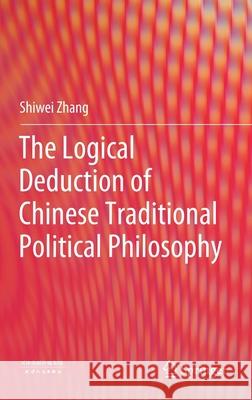The Logical Deduction of Chinese Traditional Political Philosophy » książka
topmenu
The Logical Deduction of Chinese Traditional Political Philosophy
ISBN-13: 9789811643750 / Angielski / Twarda / 2021 / 632 str.
The Logical Deduction of Chinese Traditional Political Philosophy
ISBN-13: 9789811643750 / Angielski / Twarda / 2021 / 632 str.
cena 483,04
(netto: 460,04 VAT: 5%)
Najniższa cena z 30 dni: 462,63
(netto: 460,04 VAT: 5%)
Najniższa cena z 30 dni: 462,63
Termin realizacji zamówienia:
ok. 22 dni roboczych.
ok. 22 dni roboczych.
Darmowa dostawa!
Kategorie BISAC:
Wydawca:
Springer
Język:
Angielski
ISBN-13:
9789811643750
Rok wydania:
2021
Wydanie:
2022
Ilość stron:
632
Waga:
1.04 kg
Wymiary:
23.39 x 15.6 x 3.51
Oprawa:
Twarda
Wolumenów:
01
Dodatkowe informacje:
Wydanie ilustrowane











